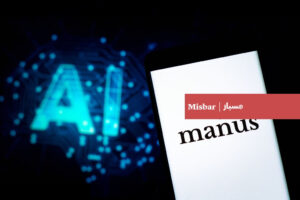DeepSeek Launch Boosts Adoption of Self-Hosted Models, According to Cloud AI Analysis

Latest Trends in Self-Hosted AI Models Following DeepSeek’s Launch
The release of the DeepSeek model earlier this year has sparked considerable interest and change in the landscape of self-hosted AI models, according to a report by Wiz, a leading cloud security firm. The report highlights significant trends in cloud-based AI technologies, leveraging data from an extensive range of public cloud accounts.
DeepSeek’s Impact on AI Adoption
DeepSeek, a company based in China, introduced its groundbreaking DeepSeek-R1 model, which is known for its advanced reasoning capabilities and efficiency in resource use. This model aims to counter the usual drawbacks associated with high-demand AI technologies, which often require substantial computational power and other resources. This shift in technology has not come without controversy, as concerns over geopolitical factors have led to increased scrutiny and restrictions on its use.
The Wiz report states that the launch of the DeepSeek-R1 has led to a notable rise in the adoption of self-hosted AI models. As per the report’s findings, the new model achieved approximately 130,000 downloads on HuggingFace, and around 7% of organizations utilizing self-hosted models have turned to DeepSeek’s technology. This reflects a remarkable 2X increase since January 2025.
Shifts in Cloud AI Landscape
This surge in self-hosted solutions is poised to affect leading cloud service providers such as Microsoft, Amazon Web Services (AWS), and Google. As more organizations opt for non-proprietary AI models, the traditional revenue streams for these cloud giants may face pressure. The competition among providers could lead to more aggressive pricing strategies, impacting the overall cloud services market.
Key Statistics on AI Adoption
The report indicates that AI adoption continues to rise, with 75% of organizations deploying self-hosted AI models and 77% using specialized AI or machine learning software. BERT remains the dominant model type, climbing from 49% to 74% year-over-year. Additionally, newcomers like Mistral AI have successfully joined the ranks of the most widely used models.

Security Challenges with Self-Hosted Models
Another aspect of concern that the Wiz report highlights is security. Despite the benefits of innovation brought by models like DeepSeek, vulnerabilities have surfaced, leading to potential data exposure risks. A significant security incident involving DeepSeek was reported, where sensitive data was found in a publicly accessible database. This access permitted manipulation of internal data and included critical logs with sensitive information.
In January 2025, 20% of organizations reported security incidents related to their self-hosted AI models, up from 14% the previous year. Data leaks were the most prevalent incident type, constituting 45% of all security issues reported.
The findings emphasize that while AI technologies may present substantial opportunities for growth and flexibility, they also bring serious security risks that organizations must address. The rate of self-hosted AI adoption must be matched with strong cybersecurity practices to safeguard sensitive information.
With the ongoing evolution of AI in cloud environments, companies are encouraged to prioritize security measures. As they embrace new technologies, it is vital to ensure safety does not fall victim to innovation.





